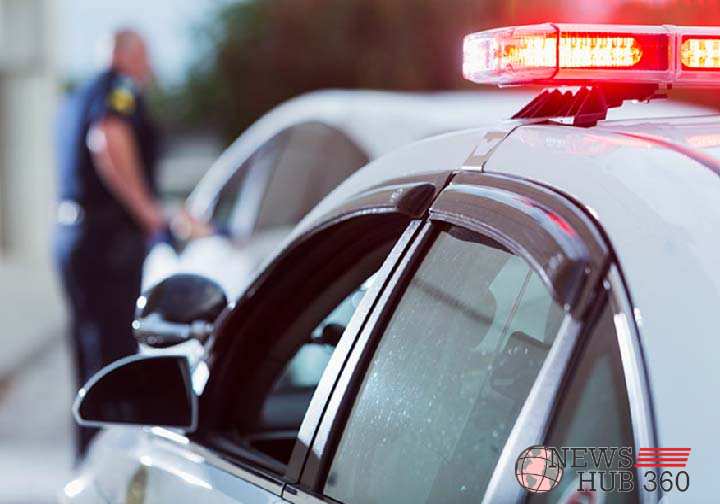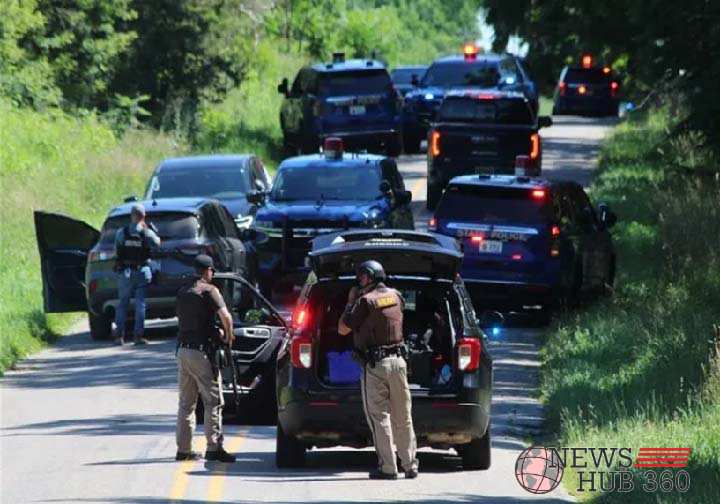Traffic stops are one of the most common interactions people have with law enforcement, yet they often come with a mix of anxiety and uncertainty. Whether it’s a routine check or something more significant, traffic stop news frequently highlights critical issues surrounding safety, rights, and law enforcement practices. In this article, we’ll delve into the nuances of traffic stops, share recent news updates, and help you understand your role as a responsible driver during these interactions.
1. Introduction to Traffic Stops
Traffic stops are a routine part of law enforcement aimed at ensuring road safety and law compliance. However, they can quickly become a focal point of controversy, especially when incidents go viral. Why is that? Traffic stops are often a microcosm of broader societal issues, ranging from racial profiling to debates over police practices.
2. Why Traffic Stops Happen
Ever wondered why police pull drivers over? It’s not always about speeding or running a red light. Traffic stops can occur for:
- Moving violations: Speeding, reckless driving, or ignoring road signs.
- Equipment issues: Broken tail lights, expired tags, or excessive window tinting.
- Suspicious behavior: Erratic driving or other behavior raising suspicion of DUI or other offenses.
3. Recent Traffic Stop News Highlights
Recent traffic stop news stories have shed light on everything from groundbreaking legal cases to harrowing personal experiences. For instance, the use of bodycams in several states has increased transparency, but also sparked debates about privacy and accountability. One viral story involved a motorist who recorded their interaction, highlighting the importance of knowing your rights.
4. How to Stay Calm During a Traffic Stop
Getting pulled over can feel like being thrust into a spotlight unexpectedly. To ease your nerves:
- Take deep breaths and remind yourself to stay calm.
- Keep your hands visible on the steering wheel.
- Respond politely, regardless of the officer’s tone.
Think of it like being a guest in a formal setting; composure often dictates the outcome.
5. Understanding Your Rights
You have rights, even during a traffic stop. These include:
- The right to remain silent: You are not obligated to answer incriminating questions.
- The right to refuse a search: Without probable cause or a warrant, your vehicle cannot be searched.
- The right to record the interaction: As long as you don’t interfere, recording is legal in most states.
6. What to Do if You’re Pulled Over
Follow these steps for a smoother interaction:
- Pull over safely: Use your signal and stop in a well-lit, safe area.
- Roll down your window: Enough to communicate but stay mindful of your surroundings.
- Provide requested documents: Driver’s license, registration, and insurance.
7. Common Reasons for Traffic Stops
Some of the most common causes include:
- Speeding: The leading cause of tickets worldwide.
- Distracted driving: Using your phone or eating behind the wheel.
- Equipment violations: Broken lights or missing plates.
8. Safety Tips for Drivers and Officers
Both parties share responsibility for safety. Drivers should:
- Avoid sudden movements.
- Communicate intentions clearly.
Officers, on the other hand, are encouraged to use de-escalation techniques and adhere to training protocols.
9. The Role of Dashcams and Bodycams
Dashcams are like impartial witnesses, recording the entire event. They benefit both drivers and officers by:
- Providing clear evidence in disputes.
- Encouraging professionalism during interactions.
10. Legal Implications of Traffic Stops
Traffic stops can lead to legal consequences, such as:
- Fines for minor infractions.
- Arrests for outstanding warrants.
- Escalation to more severe charges, depending on circumstances.
11. Addressing Bias in Traffic Stops
Unfortunately, not all traffic stops are equal. Studies have highlighted disparities in how different demographics experience traffic stops. Efforts are underway to address these biases through training, technology, and policy changes.
12. The Impact of Technology on Traffic Stops
Technology, from automated license plate readers to apps that educate drivers about their rights, is transforming the nature of traffic stops. These advancements aim to increase efficiency and reduce unnecessary confrontations.
13. Famous Traffic Stop Cases and Their Outcomes
High-profile cases, such as Sandra Bland’s tragic story, have catalyzed discussions about police reform. These cases remind us of the importance of accountability and transparency in law enforcement.
14. How Traffic Stops Influence Policy Changes
Traffic stop news has driven significant policy changes, including:
- Requiring bodycams for all officers.
- Implementing mandatory de-escalation training.
- Reducing pretextual stops to limit racial profiling.
15. Conclusion: Navigating Traffic Stops Safely
Traffic stops may feel intimidating, but staying informed and calm can make all the difference. Knowing your rights, understanding your responsibilities, and practicing safe behaviors help ensure a smoother experience for everyone involved.
FAQs
1. What should I do if I believe I was unfairly stopped?
Document the interaction and file a formal complaint with the police department. You can also seek legal advice if necessary.
2. Can I refuse to answer an officer’s questions during a traffic stop?
Yes, you can remain silent, especially if the questions may incriminate you. Politely inform the officer of your decision.
3. Are police officers allowed to search my car without a warrant?
Officers need probable cause or your consent to conduct a search without a warrant.
4. What role does recording play in traffic stops?
Recording provides an accurate account of the interaction, which can be useful for accountability or legal purposes.
5. How can I avoid getting pulled over?
Follow traffic laws, maintain your vehicle, and drive attentively to reduce the likelihood of being stopped.



